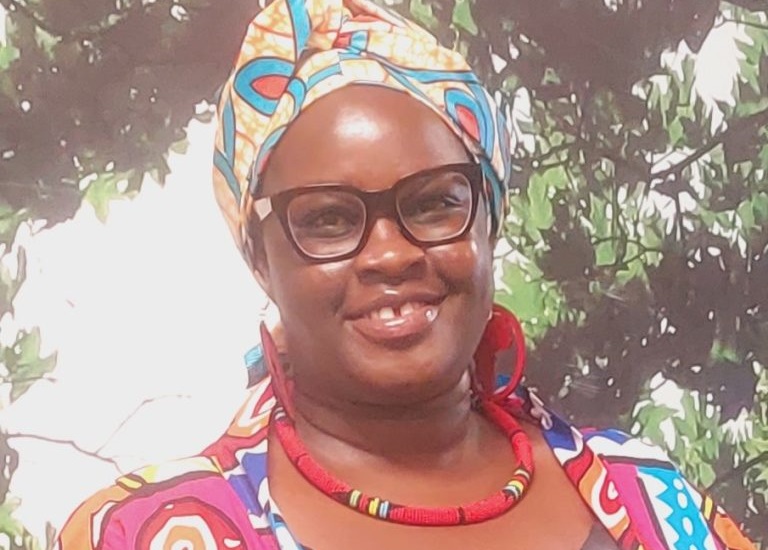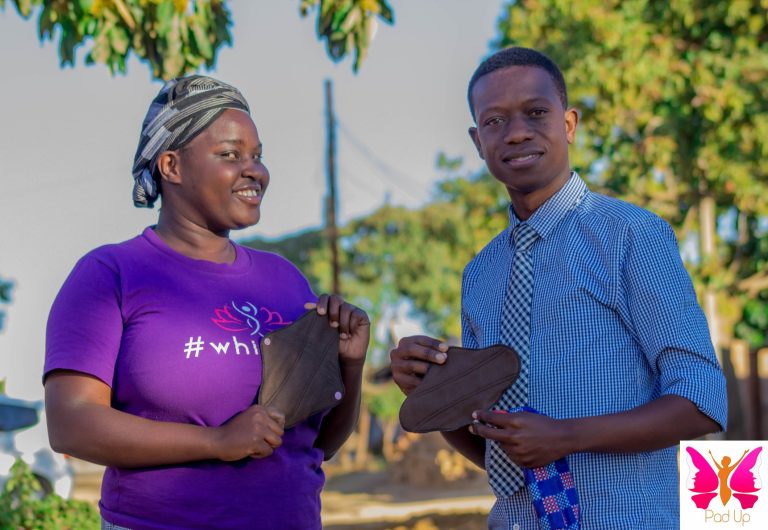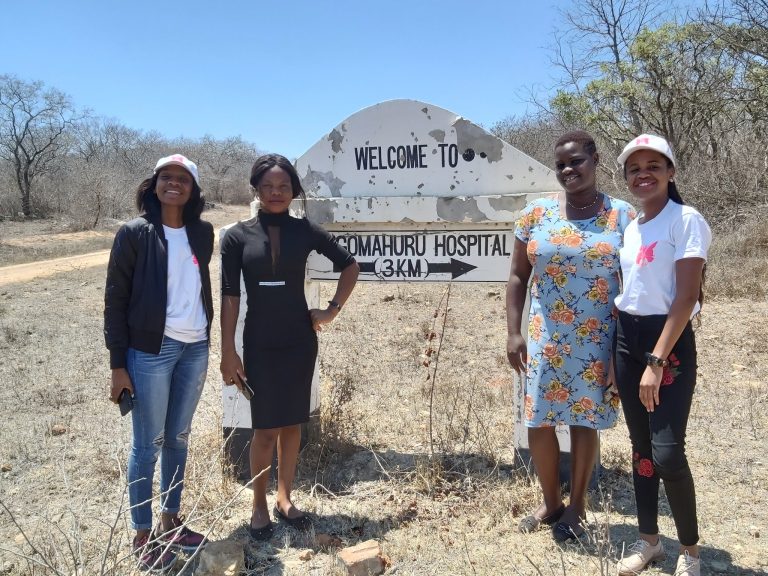
Being diagnosed with endometriosis
Growing up in Zimbabwe, talking about menstrual health to just anyone was considered as a taboo. I live with endometriosis and polycystic ovary syndrome (PCOS). I started my menses in 2009 when I was 13 years old. I had very painful, long and irregular periods. The pain was unbearable, but we didn’t really know what the cause was. I would miss school because I would be struggling and my periods would last 10 or 12 days and would be really painful.
We tried pills, and we tried herbs, like sage, to treat it, but they didn’t help. In 2010 my dad suggested a visit to a gynaecologist because what I was going through wasn’t normal. From 2010-2015, I was given all types of pills but most of these were pain relief pills. I was diagnosed with endometriosis, PCOS and hormonal imbalance in June 2015. I was interested in knowing what was happening with me because other people would go to school when they had periods. They would just go in and be normal. But for me it wasn’t normal, and I didn’t really understand why.
I had a friend who was struggling as well. So some people were saying maybe it’s just something which doesn’t have to do with menses, but they didn’t really know what it was. We started doing research in 2015, I had hormonal imbalance treatment, and my periods went from 10-12 days to seven, then five days.

After that I started to research more, because I was really interested in what was happening, and my brother showed interest too. In 2018, he had a start-up called Pad Up Zimbabwe and the main focus was to raise awareness on Menstrual Health whilst trying to end period poverty. Pad Up Zimbabwe manufactures reusable sanitary pads for donations and resale, and teaches how to make the reusable pads. In 2021, I joined a support network called Zimbabwe Endometriosis Support Network. This support group is for women that are living with menstrual related conditions which include, but are not limited to, endometriosis, PCOS, adenomyosis, dysmenorrhoea and fibroids.
Raising awareness in the community
In 2018, with the help of my brother and friends, we started going to different communities, teaching them about menstrual health and then I began posting about it on my social media. As I mentioned earlier, talking openly about menstrual health is considered a taboo in Zimbabwe, so I received a lot of negativity from relatives, friends, and other people I know. Some went to the extent of telling my parents not to allow me to post such issues on social media. I was called different names due to what I was posting and some even chose to disassociate themselves from me.
I’m grateful because my family is really supportive. They supported me throughout. The more I shared about my story, the more I realised I was not alone. There are more women with similar conditions but they don’t have knowledge on what it is they are going through, and this also has caused so much distress in them too.

In December 2023, together with a friend who has become a sister, we formed a support group called Hey Cyster. This support network is there to offer emotional support, dietary tips and being there for every woman battling menstrual health. I am glad the group has 100 women with the same objective of living a positive and meaningful life besides the limitations. Having endometriosis, PCOS or fibroids is not the end of the world, there’s lots you can do and there are resources that can help. We have specialists that do different talks and assist the women. We also have nutritionists, physiotherapists, gynaecologists and other health care professionals that have volunteered to offer their advice and knowledge for free.
Empowering others
In March, I’m going for a holiday back to Zimbabwe and we’re planning to make a donation at a farm community with about 100 kids. I believe that service to humanity is the best work of life, hence my heart goes to those who cannot afford the basic necessities and with the little I have I can bring a smile to their faces. Being around children for me is therapeutic and brings so much comfort and joy. As most of the women I work with are struggling to conceive this can also be comforting to them and ease their mental health. To every woman who is struggling to have kids due to menstrual related conditions, I want to tell them not to lose hope, I believe God’s time is always the best time, because I have seen positive feedback from other women who eventually had kids after years of trying.
Endometriosis and PCOS, come with so much and can actually damage your mental health because you go through a lot of depression. In most cultures, families believe that after being married the next thing is to have kids. The societal pressure that comes from the surroundings is unmatched. This can therefore lead to mental breakdown, suicidal thoughts, depression and even divorce, thus a great support system will be needed.
With the support groups that we have, it has been really helpful for a lot of women. We are there to support each other and to give positive hope. These have been the safe havens for most women, where they are able to pour out their feelings and thoughts without being judged. It has been a happy place for most women.
Living with endometriosis
It is a challenge living with endometriosis as each day comes with its struggles and hopping from one medication to another can also be depressing. Medication has helped me. Herbal supplements, physical exercises and diet have also been helpful. I have taken all sorts of pills and some have caused a massive reaction but I do not tire. I have been on Provera, a hormone treatment which is also used to treat some cancers. I have been on metformin, tranexamic acid and naproxen just to mention a few. I am currently taking herbal supplements, mefenamic acid, exercising and dieting. Some days are bad, but some days are better but I am always positive and looking for brighter days ahead.
I have seen that some people don’t understand what we go through. They usually misinterpret our bad days as laziness. When you tell people you are always tired, even in the morning, although you could have done nothing, they take it the wrong way. They might just think you’re just being lazy, which is what I faced when I was 15 and 16. When people would visit our house, I’d be sleeping and I would have done nothing, but I’d just be feeling exhausted. I would not blame them as they will not be aware of things we go through.
Getting support
There’s a special moment when you open up to people, and some people are really willing to listen and ask you if they can help in any way. That feeling that you have got some people that are there for you, willing listen to you, you have got people that you can cry to when at your lowest. I’ve been more than grateful.
Particularly I’m grateful for my management, especially my team leader at Cygnet. Helen Chamberlain has been very supportive throughout, whenever I’ve needed to see my GP. Last year I was diagnosed with sciatic endometriosis and my back and leg have been really giving me a hard time. But the people that I work with, they’ve been really, really supportive and I’m grateful for that.
Plans for the future
From mid-March until mid-April, I am returning to Zimbabwe and will be running some Menstrual Awareness programmes in communities. I’m also hoping to start an endometriosis and PCOS podcast in March, whilst speaking as much as I can on all my social media platforms about Menstrual Health. Watch this space!
Endometriosis Facts and Figures
The latest facts and figures about endometriosis from Endometriosis UK.
- 1 in 10 women and those assigned female of birth of reproductive age in the UK suffer from endometriosis.
- 10% of women world-wide have endometriosis – that’s 176 million worldwide.
- The prevalence of endometriosis in women with infertility can be as high as to 30–50%.
- Endometriosis is the second most common gynaecological condition in the UK.
- Endometriosis affects 5 million women and those assigned female at birth, a similar number of those affected by diabetes.
- On average it takes 8 years from onset of symptoms to get a diagnosis.
- Endometriosis costs the UK economy £8.2bn a year in treatment, loss of work and healthcare costs.
- The cause of endometriosis is unknown and there is no definite cure.